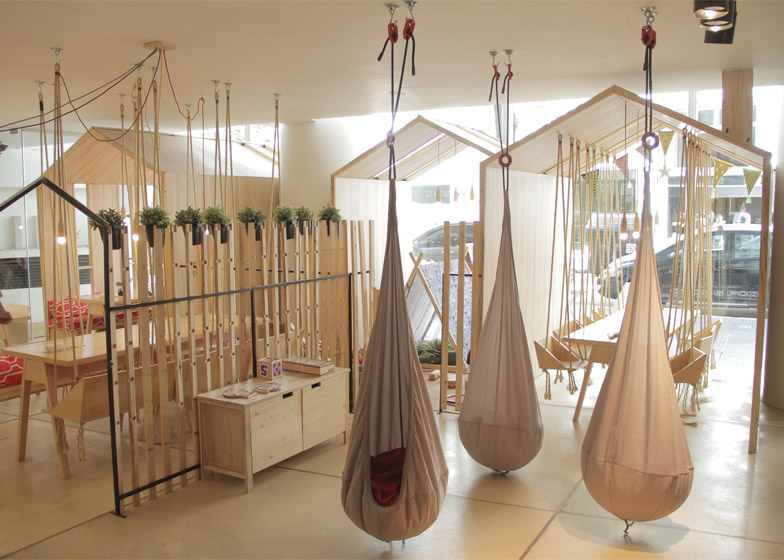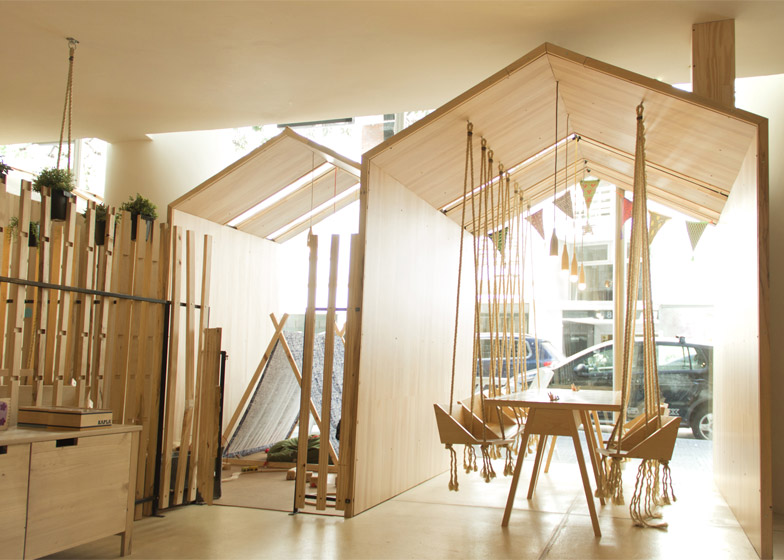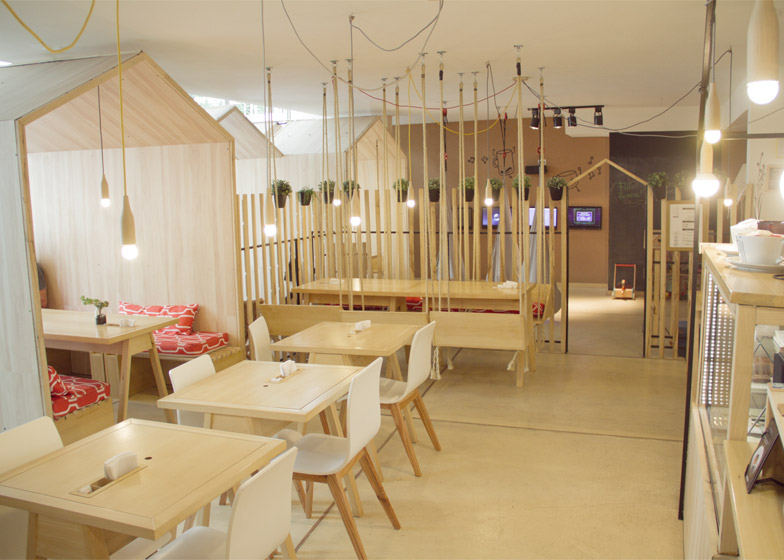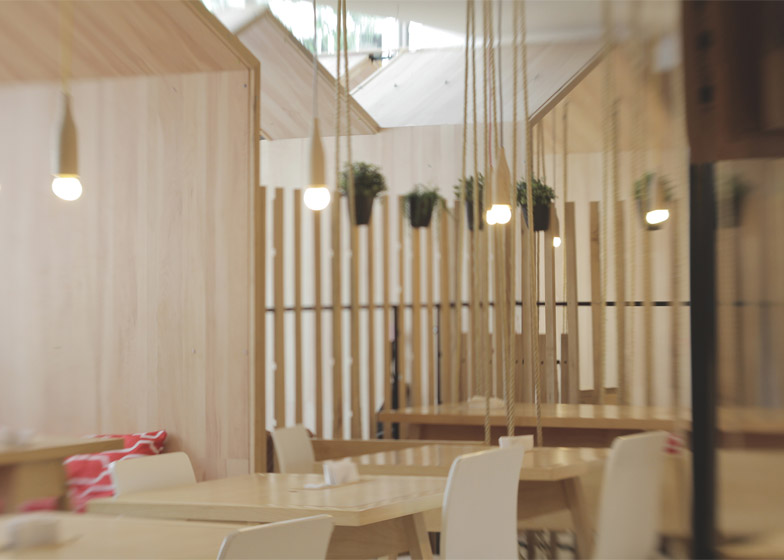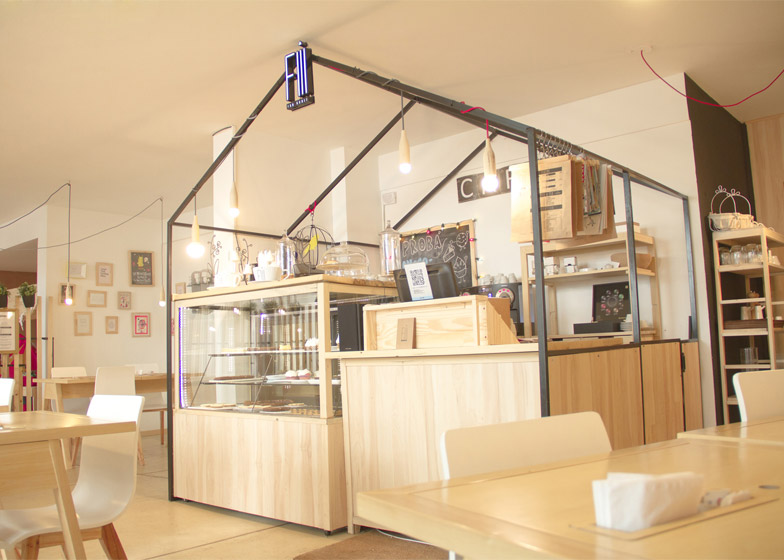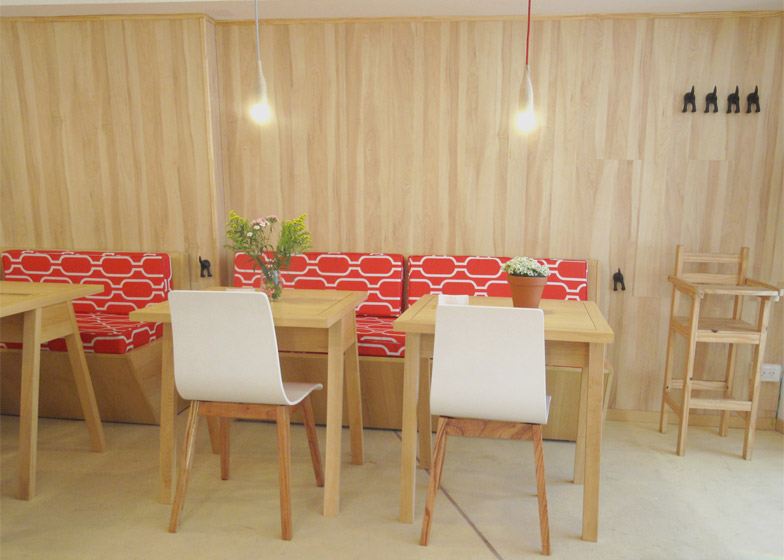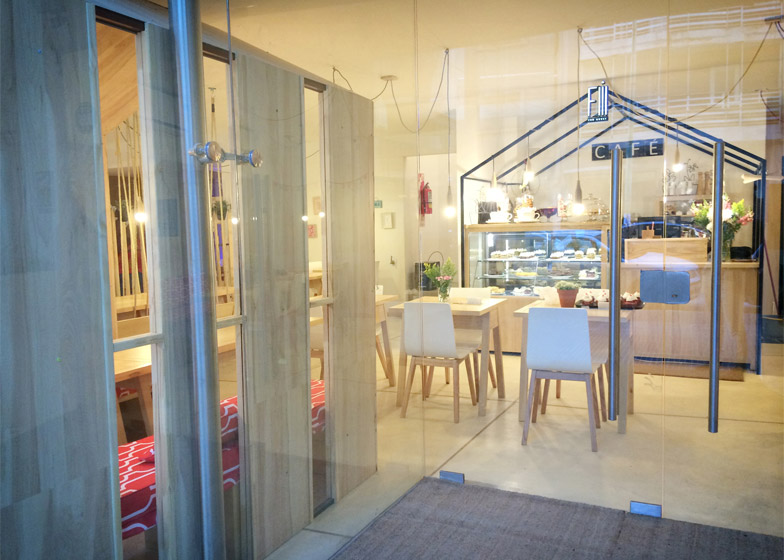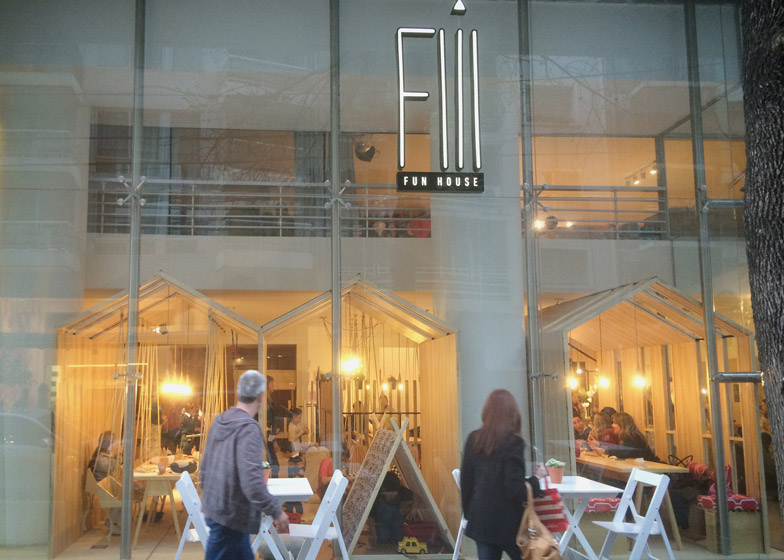Small wooden houses contain play areas and swinging furniture at this Buenos Aires cafe for both adults and children by architect Íris Cantante (+ slideshow).
Split over two levels, the 240-square-metre Fiii Fun House has a cafe and play zone on the ground floor, and a space for private events upstairs.
Íris Cantante installed three "fun houses" within the children's area of the cafe, which is located in the Las Cañitas area of the Argentinian capital.
"The wood houses divide and control the open space, generating different zones with different moods," Cantante told Dezeen.
The first structure covers a large communal table for adults, while the second was designed with a sound-absorbing cork floor as a play area for babies and toddlers.
In the third, wooden seats with triangular profile are hung from ropes on either side, creating swings for older children around a table.
"I felt that using swings instead of chairs would help and encourage them to feel more relaxed and free so they can get loose in their imagination," said Cantante.
Thin gaps in the pitched roofs of these structures add to the amount of light that enters from the open gable-end walls.
In the same area, fabric sacks suspended from the ceiling create cocoon-like seats for children to hide inside.
This play zone, where children are looked after while their carers eat, is fenced off from the dining area by tall wooden poles.
Topped with a row of potted plants, the semi-open partition allows the adults to keep an eye on the kids.
On the other side of the fence, larger swing seats can be used by adults. Standard tables and chair fill the remainder of the dining area.
A service counter is located within another house-shaped frame, which is made from metal tubing.
"The idea was to create a global concept," Cantante told Dezeen. "A funny, beautiful and stylish place, where everybody felt comfortable."
South American guatambu wood was used to create the majority of the structures and bespoke furniture pieces.
Lightbulbs are hung from wires that are strung across the ceiling from a small number of connection points.
The cafe is fronted by a facade of double-height glazing so the gabled wooden structures can be viewed from the street.
Photography is by Diego Delpino.

